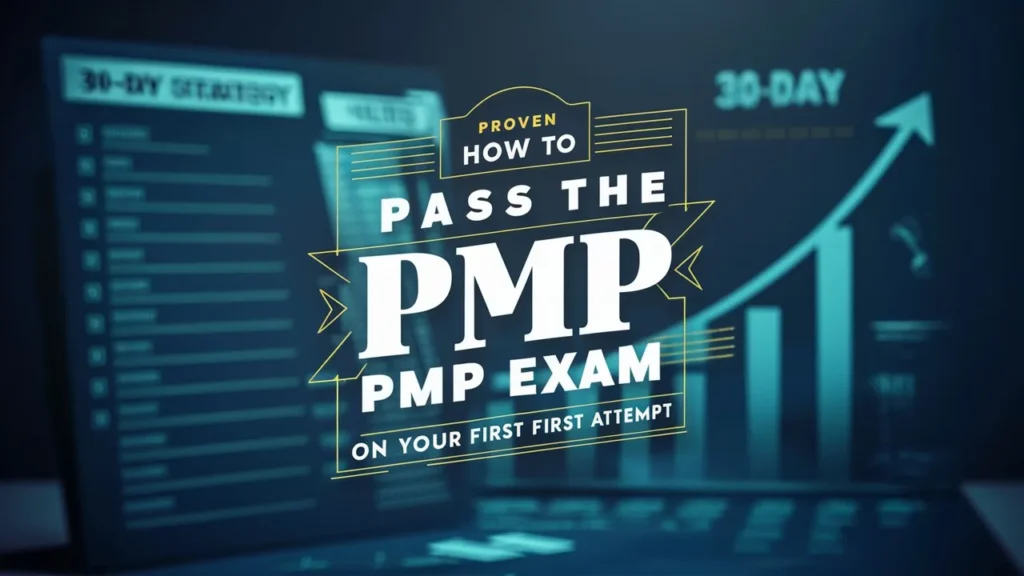Introduction
If you’re a project management veteran with 8-30 years of experience, the Project Management Professional (PMP) certification is likely on your radar—whether to boost credibility, secure a promotion, or stay competitive. Yet, here’s the reality: 70% of PMP aspirants fail their first attempt, often misled by myths swirling around this high-stakes exam. “You need to memorize everything.” “Experience alone is enough.” Sound familiar?
The PMP isn’t just another credential—it’s a test of PMI’s framework, your adaptability, and your prep. This blog tackles PMP exam myths debunked, cutting through the noise to reveal what really matters for success. Quick Tip: Start by aligning your experience with the PMBOK Guide—it’s your first step to separating fact from fiction. Let’s dive in and set the record straight.
Myth 1: You Must Memorize Everything
The Misconception
Many believe the PMP requires rote memorization of the PMBOK Guide—every process, input, output, and tool. With 49 processes and 10 knowledge areas, aspirants panic, thinking success hinges on a photographic memory.
The Truth
What to Do Instead
Focus on core concepts: the 5 Process Groups (Initiating, Planning, Executing, Monitoring, Closing) and their interplay. Study the PMBOK Guide (7th Edition) for principles, not line-by-line memory. Use flashcards for key terms (e.g., “EVM formulas”) and practice applying them to scenarios—e.g., “A project’s behind—what’s your next step?” Aim for comprehension, not a brain dump.
Case Study: Sarah, a 15-year PM, wasted weeks memorizing ITTOs (Inputs, Tools, Techniques, Outputs). She failed her first attempt but passed the second by focusing on practical application, scoring above target.
Myth 2: Experience Alone Guarantees a Pass
Why It’s Believed
With decades leading projects—multimillion-dollar budgets, global teams—you might think, “I’ve got this.” Seasoned PMs assume their real-world wins translate directly to PMP success.
Reality Check
How to Bridge the Gap
Map your projects to PMI’s processes: “How did I initiate that $5M rollout?” Study the Exam Content Outline (ECO)—People (42%), Process (50%), Business Environment (8%)—and identify gaps. Supplement experience with 100-150 hours of prep, focusing on unfamiliar areas like agile or PMBOK terminology.
Success Story: John, a 20-year PM, failed by relying on waterfall instincts. After 120 hours aligning his skills to PMI’s ECO, he passed with flying colors.
Myth 3: Agile Isn’t That Important
The Assumption
Traditional PMs—especially those steeped in predictive methods—downplay agile, thinking, “I’ve delivered without Scrum.” Some assume agile’s a small slice of the PMP, safe to skim.
The Facts
Agile and hybrid approaches dominate 50% of the exam, per the 2021 ECO update. PMI reflects industry trends—70% of projects now use agile or hybrid methods (PMI Pulse 2023). PMP exam myths debunked show you can’t dodge it: questions blend Scrum, Kanban, and waterfall in scenarios like, “How do you pivot a delayed predictive project?”
Action Steps
Study PMI’s Agile Practice Guide alongside PMBOK 7. Learn key terms—sprints, backlogs, burndown charts—and practice hybrid cases: “A fixed-budget project needs agility—how?” Take an agile basics course (e.g., Scrum.org’s PSM I) if you’re new to it. Master the blend—it’s non-negotiable.
Example: Lisa, a 22-year PM, ignored agile and scored below target. After 40 hours on Scrum and hybrid mocks, she passed, nailing the agile-heavy sections.
Myth 4: Practice Exams Are Optional
The Myth’s Origin
Busy PMs think, “I’ll study the material and wing it.” With tight schedules, practice exams feel like a luxury—especially if you’re confident in your knowledge.
Why It’s Wrong
Best Practice
Complete 7-10 full-length practice exams (e.g., PMI Simulator, PrepCast). Aim for 75-80% consistently before scheduling. Simulate test day: no notes, timed breaks, quiet space. Review every wrong answer—e.g., “Why did I miss this stakeholder question?” Build stamina and confidence.
Success Story: Raj, a 12-year PM, skipped mocks and failed by 5 points. After 8 timed practice runs—hitting 82%—he passed, pacing like a pro.
Myth 5: Cramming Works for the PMP
The Temptation
With demanding jobs, PMs often delay prep, hoping a last-minute cram—say, 40 hours in a week—will suffice. “I’ve crammed before,” you might think, recalling past wins.
The Flaw
Smarter Approach
Space study over 12-16 weeks, aiming for 2-3 hours daily. Use spaced repetition (e.g., Anki app) for processes and EVM formulas. Break it down: 4 weeks on concepts, 4 on agile/hybrid, 4 on mocks. How to succeed in PMP exam? Build mastery incrementally.
Case Study: David, an 18-year PM, crammed and failed. A 14-week plan with spaced learning—reviewing weekly—led to a first-try pass with above-target scores.

